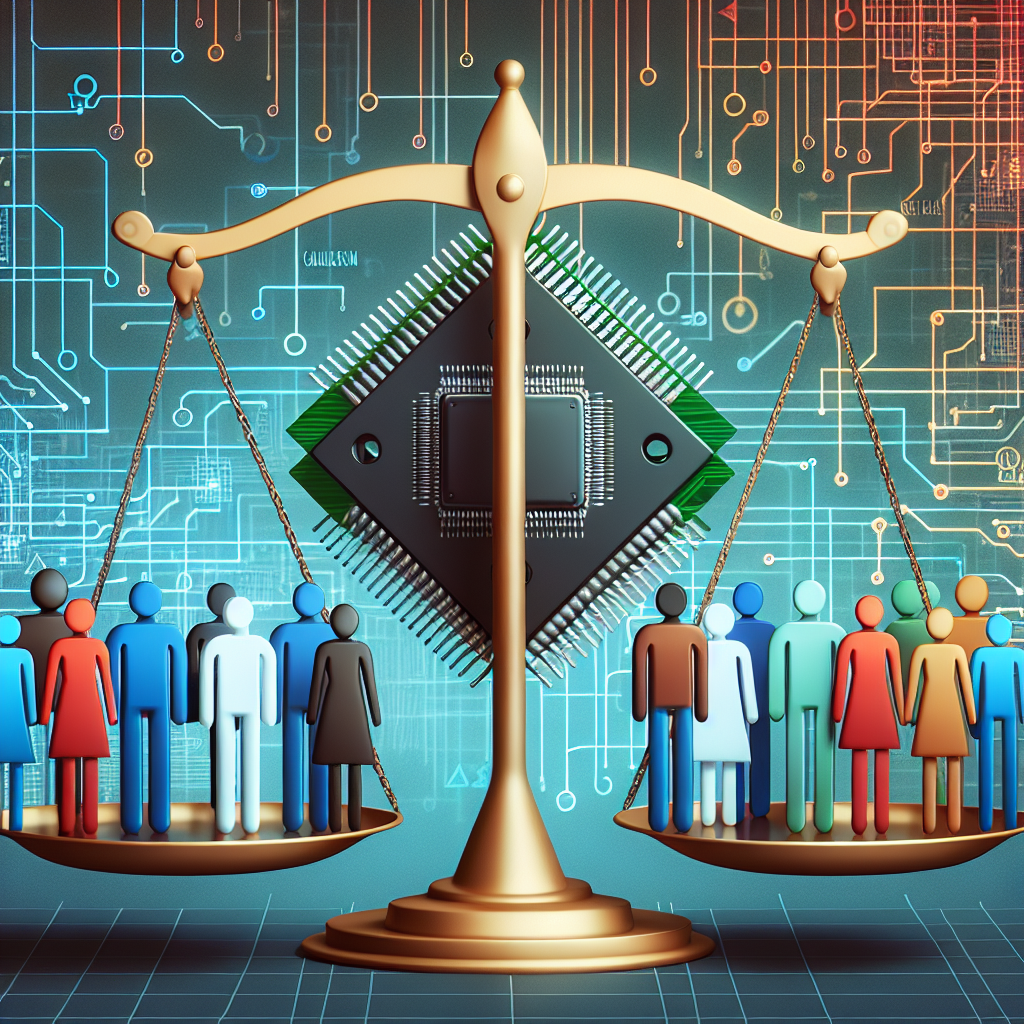Introduction
Artificial intelligence (AI) is swiftly reshaping various industries, changing our interactions with technology, and influencing decision-making across multiple sectors. While AI brings the promise of enhanced efficiency and innovation, it also presents serious ethical dilemmas, particularly concerning bias and discrimination. Algorithms that are biased can reinforce existing disparities, leading to unfair treatment based on race, gender, socioeconomic status, and more. This article delves into the origins of algorithmic bias, its societal effects, and possible solutions to reduce discrimination in AI systems.
Understanding Algorithmic Bias
Algorithmic bias occurs when AI systems yield results that are systematically skewed due to flawed assumptions in the machine learning process. Several factors can contribute to bias, including:
1. Training Data
AI models learn from extensive datasets that often mirror historical behaviors and societal norms. If the training data has embedded biases—such as an underrepresentation of certain groups or discriminatory trends—AI models will inadvertently learn and mimic those biases. For instance, facial recognition technology has been found to misidentify individuals from marginalized communities mainly due to insufficient diversity in the training datasets.
2. Design and Development Choices
The architecture of AI algorithms can introduce bias as well. Developers might unconsciously integrate their own biases into the algorithms, opting for specific features or prioritizing certain outcomes over others. This issue can be worsened by a lack of diversity within tech teams, leading to limited perspectives during algorithm development.
3. Feedback Loops
When deployed, AI systems can establish feedback loops that reinforce biases. For example, if a biased algorithm is employed in hiring processes, it may favor candidates similar to those previously selected, further entrenching inequality and restricting opportunities for underrepresented groups.
Consequences of Biased Algorithms
The ramifications of biased algorithms can be far-reaching, impacting numerous life aspects:
1. Employment Discrimination
AI-driven recruitment tools may disproportionately advantage certain demographics while disadvantaging others. Research indicates that these systems often filter out qualified candidates based on biased metrics, thereby perpetuating existing employment disparities.
2. Criminal Justice
Predictive policing algorithms can result in over-policing areas with higher populations of minorities, based on historical crime data. Such practices not only damage trust in law enforcement but also lead to increased incarceration rates among marginalized groups.
3. Access to Services
Biased algorithms in loan approval or healthcare can restrict access to essential resources. Systems that assess creditworthiness or medical treatment eligibility may favor biased conclusions, denying crucial services to disadvantaged individuals.
Combatting Algorithmic Bias
Tackling algorithmic bias necessitates a comprehensive approach:
1. Diverse Data
It is vital to ensure that training datasets are diverse. This involves actively seeking to include underrepresented groups and their experiences in the data. Data audits can help spot and correct biases before they infiltrate AI systems.
2. Inclusive Development Teams
Diversity within technology teams can foster more thoughtful design decisions and a broader awareness of potential biases. Companies should focus on inclusive hiring practices to build teams that reflect a wide array of backgrounds and experiences.
3. Regular Audits and Accountability
Conducting regular audits of AI systems can help identify biased outcomes early in the process. Transparency in AI development and holding organizations accountable for their algorithms can encourage ethical practices. Standards and regulations may be established to govern AI technologies effectively.
4. Public Engagement
Encouraging public discussion about AI ethics is essential. Involving communities in dialogues on how AI impacts their lives can promote a better understanding and more accountable practices in algorithmic development.
Conclusion
While AI possesses significant potential to enhance our lives, it also brings forth considerable ethical challenges related to bias and discrimination. Recognizing and addressing algorithmic bias is crucial for leveraging AI’s benefits while ensuring fair and equitable treatment for everyone. By emphasizing diverse data, inclusive teams, regular audits, and public engagement, we can advance toward an AI landscape that champions equality instead of perpetuating systemic discrimination. As we progress into the technological future, it is the responsibility of developers, policymakers, and society as a whole to ensure that AI serves us all justly and fairly.

